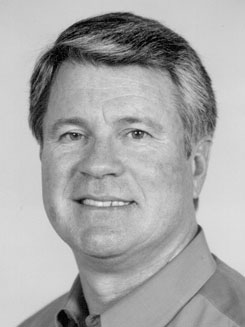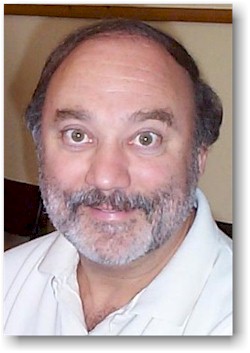No more Ambassador Centre


Jesus Loves Fellowship's Anne Hanna gives her correspondence about the closure of Ambassador Centre at Azusa Pacific University.
In the April 12, 2006 Ministerial Update, Pastor General Joseph Tkach made the announcement that Ambassador Center at Azusa Pacific University was closing.
This is a LONG overdue decision. Established in 1997 the Center saw it's first graduates in 1999. During the years since then it has had an average of 4 to 5 grads each year.
"I am pleased to announce that Russell Duke has been appointed President of Ambassador College of Christian Ministry. We want to thank Russell for his service to our young people at the Ambassador Center at Azusa Pacific University and are excited that he will be joining us full-time to focus on pastoral and leadership education. The Ambassador Center will close in June.
Upon the close of Ambassador University in 1997, Russell moved from Big Sandy, Texas, where he served as President of AU, to work for Azusa Pacific University under a joint project funded by APU and WCG. Over nine years, we have been able to assist 55 WCG students with their Christian education at APU. More than 30 students have graduated, and many are serving today in WCG congregations, with some of them leading worship and other ministries in our churches.
Several factors have led us to close the Ambassador Center in favor of putting greater emphasis on serving the educational needs of pastors, ministry leaders and WCG members. So, effective in June, Russell will be joining the staff in Glendora where he will commit his time to develop the ACCM Advanced Diploma program. "I'm looking forward to developing courses in theology and pastoral leadership for ministers and members. Many of the courses I have taught at Ambassador and at APU can be adapted for our online program, and now I can have more time to focus that part of my ministry."
Due to Russell’s transition over from APU and the move of the denominational office, we will not be running any classes this spring. ACCM classes will resume in the summer, followed by a second session this fall. " (April 12, 2006 Ministerial Update from the Pastor General)
Russel Duke now serves as executive director of the academic council of ACCM.
Back in 1997, the church described Ambassador Center as:
"The mission statement of Ambassador Center is: Provide a central focus for WCG members who are committed to sound Christ-centered education in liberal arts and theology in order to establish a trained laity and ministry for Christian service and leadership in the WCG, while participating in the interdenominational vision at APU. "
So it probably now seen as unnecessary since the church offers ACCM to its members and ministry.
Big problem is that Azusa IS accredited and ACCM IS NOT.
With the WCG so small and amazingly showing signs of being strapped for cash despite selling its major asset, how practical is ACCM?
This is a LONG overdue decision. Established in 1997 the Center saw it's first graduates in 1999. During the years since then it has had an average of 4 to 5 grads each year.
"I am pleased to announce that Russell Duke has been appointed President of Ambassador College of Christian Ministry. We want to thank Russell for his service to our young people at the Ambassador Center at Azusa Pacific University and are excited that he will be joining us full-time to focus on pastoral and leadership education. The Ambassador Center will close in June.
Upon the close of Ambassador University in 1997, Russell moved from Big Sandy, Texas, where he served as President of AU, to work for Azusa Pacific University under a joint project funded by APU and WCG. Over nine years, we have been able to assist 55 WCG students with their Christian education at APU. More than 30 students have graduated, and many are serving today in WCG congregations, with some of them leading worship and other ministries in our churches.
Several factors have led us to close the Ambassador Center in favor of putting greater emphasis on serving the educational needs of pastors, ministry leaders and WCG members. So, effective in June, Russell will be joining the staff in Glendora where he will commit his time to develop the ACCM Advanced Diploma program. "I'm looking forward to developing courses in theology and pastoral leadership for ministers and members. Many of the courses I have taught at Ambassador and at APU can be adapted for our online program, and now I can have more time to focus that part of my ministry."
Due to Russell’s transition over from APU and the move of the denominational office, we will not be running any classes this spring. ACCM classes will resume in the summer, followed by a second session this fall. " (April 12, 2006 Ministerial Update from the Pastor General)
Russel Duke now serves as executive director of the academic council of ACCM.
Back in 1997, the church described Ambassador Center as:
"The mission statement of Ambassador Center is: Provide a central focus for WCG members who are committed to sound Christ-centered education in liberal arts and theology in order to establish a trained laity and ministry for Christian service and leadership in the WCG, while participating in the interdenominational vision at APU. "
So it probably now seen as unnecessary since the church offers ACCM to its members and ministry.
Big problem is that Azusa IS accredited and ACCM IS NOT.
With the WCG so small and amazingly showing signs of being strapped for cash despite selling its major asset, how practical is ACCM?





